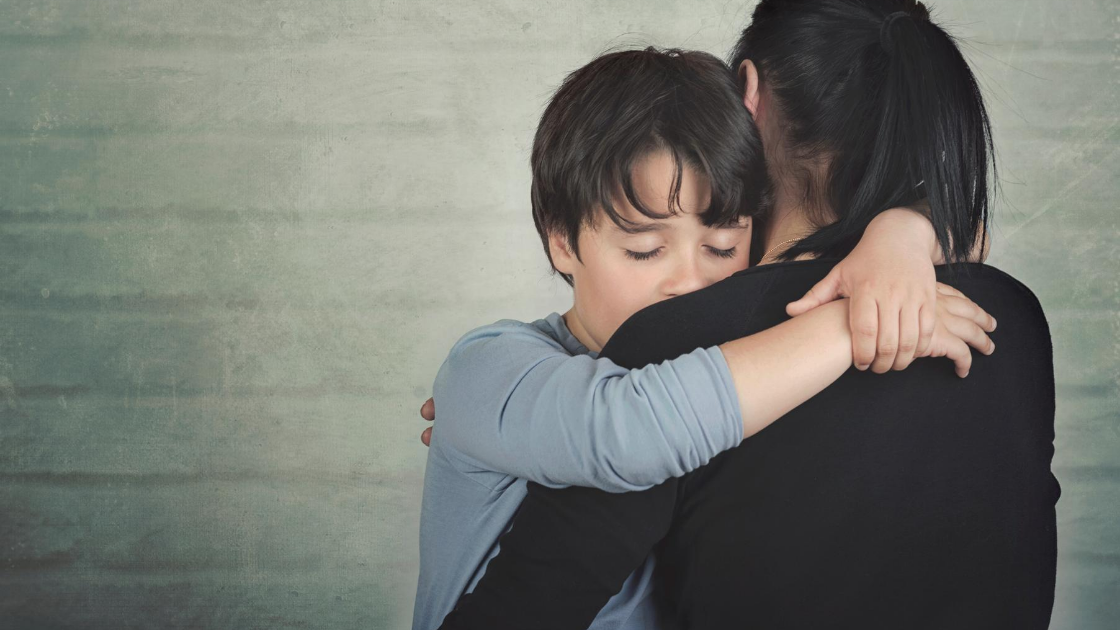|
Divorce and separation are challenging no matter what, but when you have a difficult ex, the challenge increases exponentially. However, it can be managed, with the right perspective and some proactive strategies.
Your ex may have made you feel bad about yourself during your marriage/relationship so your self-esteem is low. You may be exhausted from years of dealing with your ex’s difficult behavior and you can get triggered by this. How do you co-parent when it’s so hard to control your emotions? Follow these 5 guidelines to make co-parenting with a difficult ex more effective: 1. Build your self-esteem and be patient with yourself. Treat yourself as you would treat a friend. Be patient with yourself – if you mess up, recognize that you’re learning how to deal with a very difficult situation. Change your self-talk from “I can’t believe I let her get to me.” to “I’m doing the best I can and it’s ok.” 2. Don’t get triggered by your ex’s provocative remarks. This is easier said than done. If you can take a pause before you respond, you’ll give yourself the time to think through how you’d like to handle the situation. A pause enables you to respond rather than react. Take a few deep breaths, meditate, call a friend – anything that helps you calm down. 3. Seek a parenting coordinator through the courts. Courts can appoint a parenting coordinator to coordinate scheduling and communication issues between the parents. It’s helpful to have a professional who is trained to deal with high conflict divorce handle these issues. 4. Develop your divorce strategy. What are your priorities? What kind of life do you want in 6 months or 1 year? Without a strategy, you can get derailed by your ex’s behavior. Remind yourself why you’re leaving the marriage and what kind of life you want going forward. This will give you perspective beyond the current struggle. 5. Don’t make your child the middleman. Don’t use your child to send messages to the other parent, don’t vent to your child about the other parent and don’t ask your child for information about the other parent. Let your children know that it’s not ok to do those things and if either parent tries to do any of those behaviors, they will know that it’s not ok. They can learn to set boundaries with their other parent. The life you want is waiting for you. Ignore the noise that’s coming from your ex and celebrate that it can’t control you anymore. Focus on the present moment, breathe deeply, notice nature, appreciate freedom. Once you recognize that finding your peace has nothing to do with anyone else, you’ll have the life that you’ve been dreaming of.
1 Comment
Too many times we let our anger get the best of us and we get stuck. We can’t move on in our lives because we feel that what happened was unfair. Or there’s so much resentment built up over so long that you feel like you’re constantly struggling in your day to day life. Or you’re so used to getting approval from your ex that you desperately want that approval in order to move on.
Moving forward in your life requires work. You have to get used to your new life as a single person and re-discover who you are without being part of a couple. You must surrender to the process of grieving the life that you lost and recognize that you still can have a great life. You have to be ready to move – ask yourself, “Do I want to move on in my life?” Moving on doesn’t just happen without doing the work (I’m not talking about moving on to another relationship…that’s separate from addressing the issues that have you stuck). So what’s the work that needs to be done? The work is assessing what your emotions are and why you’re having them. The work also involves processing those emotions. How do you process your emotions? The first step is to acknowledge what feelings you have without judging yourself. If you feel anger, shame, sadness or envy, accept that it’s ok to have any and all of the feelings you have. Don’t deny or judge your feelings. Moving on is about overcoming them. Write down all the feelings you’re having and why you’re having them. The next step is to stay with your feelings no matter how uncomfortable that is. Take deep breaths and say to yourself, “I can tolerate this feeling.” While you’re tolerating the feeling, you can cry, laugh, write, draw, exercise or anything else that allows you to stay with the feeling for a certain amount of time. The final step is to be curious about why you’re having the feeling. Are some of your needs not being met? Is there a boundary that’s being violated? Is a childhood memory being triggered? Are you falling into old behavior patterns? Is this feeling due to distorted thinking? You may need help with this step by talking to a trusted friend, divorce coach or therapist. Once you go through this process, you should be able to get unstuck and move forward. Don’t hesitate to get help with this and to give yourself time to go through these steps. Even if the work is difficult, it’s definitely worth it. Because at the end, you’ll feel so much more in control of your emotions and empowered to move forward in your life. Setbacks, such as deep sadness or difficult days, are a normal part of getting through divorce. You may be feeling good for a while and then something triggers a strong painful feeling (like a text from your ex). Setbacks can be frustrating and can make you feel helpless. You can feel disoriented and scared about the future. You may feel exhausted, unable to sleep and anxious. You may question if you will ever feel good again.
Although it’s difficult, setbacks are an indication that you’re actually moving forward through your divorce recovery. Some setbacks are small and fleeting while others may be more intense where you don’t see an end to the pain. It’s important to address each setback as it occurs. If you avoid addressing each setback as it comes up, you can remain stuck in the pain or bitterness and it will take longer to move on. Throughout the process of tackling each setback you’ll take another step forward in your healing process. Here are 6 tools to help you tackle any obstacle that you face:
If you focus on what you can control, it will help you move through your divorce with more confidence. Use the tools above and you will have an easier time facing your setbacks. These strategies will enable you to feel good again and to cherish your new life! Join our Thriving Through Divorce Online Group Coaching Program here: https://go.divorcecoachjill.com/thrivingmonthly Moving on from divorce isn’t easy for most people. You may feel overwhelmed, angry and sad and not know how to deal with these intense emotions. It’s difficult to start to find a new path for your life after you’ve spent many years building a life with someone and that person isn’t a part of your life anymore. But you will be able to recover and there are several things that you can do to build a happy and fulfilling life after divorce.
The first step toward moving on is to understand what went wrong in your marriage. This doesn’t mean that you assign blame, in fact it’s the opposite. Reflect on what was wrong in the relationship in a non-judgmental way. What was the relationship lacking? What needs weren’t met for you and for your partner? The more you understand your past, the easier it will be to start the process of letting go and moving on. It’s normal to feel grief when you’re going through divorce and it takes time to process those feelings. Processing feelings involves thinking about them, talking about them and possibly writing or drawing them. It involves feeling the feelings which is difficult and many people avoid feeling the feelings for good reason. Although it can be painful, if you don't process your grief you can get stuck and you won't be able to build your new life. Grief is processed by going through the following stages:
Journaling is one tool to help process grief. Writing down your feelings enables you to get out what you’re feeling so that you don’t stuff them. Stuffing your feelings can lead to anxiety, depression and physical illness. Also, counseling, divorce coaching and divorce support groups can be really helpful. I run a divorce group coaching program which helps people going through divorce find support from others going through similar experiences in a safe environment. Another way to move on is to set small, achievable goals each day. Maybe it’s a chore that has to be accomplished or starting a new project at home or work – what is your first step towards that goal? Setting small, achievable goals, builds your confidence and enables you to start a process of moving in a positive direction. These techniques take time and work. Having support while you go through this is one of the most important things you can do to get through this process so that you can move on in your life. But if you get your team of support behind you and work at this moving on process, you will be able to develop a happy and fulfilling life for yourself. It’s definitely worth it! One way to start the divorce process in New Jersey is for one party (the plaintiff) to file a “Complaint for Divorce”. Although this is the way that a divorce can begin legally, many people don't start the process this way. There are many different ways to start the process of divorce and individuals must choose which method is best for their unique situation.
Divorce mediation is commonly used because it is relatively inexpensive and allows you to have control of the divorce process. In divorce mediation, you and your spouse hire an impartial person, a mediator, to facilitate the negotiations of the divorce agreement. The mediator doesn’t represent either of you or advocate for either one of you. Their role is to help you negotiate your disagreements. A mediator may be an attorney, paralegal or a mental health professional. This is the least expensive option (other than pro se where you complete the divorce on your own) and gives you and your spouse control over the process. You should not use mediation in two situations: 1) If there’s a power imbalance, and you’re not able to advocate for yourself and 2) If there is a history of physical or emotional abuse. Mediation works best when you and your spouse are reasonable but have some disagreements on a few major issues. You can hire a consulting attorney to advise you during your negotiations or when your agreement is almost final before you file in the court so that you have someone advocate for you from a legal perspective. Legal Grounds for Divorce in New Jersey “Legal grounds for divorce” is the term that the legal system uses to recognize the reason for the divorce. New Jersey has several grounds for divorce:
What happens after the divorce is filed? Once the divorce is filed, the party who did not file the divorce (the defendant) has 35 days after receiving the filed divorce to either file for an appearance, file an answer or a counterclaim. Filing for an appearance means that the defendant isn’t objecting to the divorce itself, but doesn’t agree to what the plaintiff is asking for. Filing an answer means that the defendant agrees or disagrees to whatever is stated in the complaint. Filing a counterclaim means that the defendant can give new information and reasons for the divorce. Property Division, Alimony and Child Custody in New Jersey Laws in New Jersey state that all property is marital property. Inheritance is an exception if the funds haven't been co-mingled. A judge will decide who gets what by the following factors:
Property, alimony and child custody are not clear cut and each divorce has unique issues. If the parties come to agreement on any of these issues on their own, the judge will abide by that agreement as long as it is in the child’s best interest. Child support in New Jersey is determined by a set of state guidelines. Divorce in any state is a complicated process. Getting good guidance is key to taking control of your divorce process and your life. If you have any questions, you can reach me for a free phone consultation through the following link: free phone consultation with Jill. Divorce is one of life’s most challenging experiences but during a pandemic it’s just that much more difficult. For instance, how do you handle custody arrangements when families are supposed to be quarantined? What if you and your ex have different ideas about what is safe? One parent may think that it’s ok to see close family and friends and the other may not be seeing anyone. These situations may make it necessary for divorcing couples to communicate and agree on a temporary custody arrangement that’s different from what the original agreement specifies.
And if you’re still living with your ex, it can be even more complicated. You’re probably having a harder time keeping apart from each other. If there is conflict between you (which there usually is in divorce), how do you keep that away from the children? It sounds like a recipe for disaster. All of this is stressful for adults, but it’s really stressful for children who don’t understand what’s going on. Following are guidelines to help parents co-parent effectively during the Covid-19 pandemic:
This is a difficult time. It’s ok to put the logistics of divorce on hold right now. Good communication, working as a team with your co-parent and focusing on the positives is more important now than it ever has been. Children need as much support as possible, and they need their parents on the same page. Set aside your differences, at least for the time being, and focus on handling this crisis for the good of you and your children. The experience of divorce often involves intense feelings of anger. Whether it’s due to an ex’s behavior in the past or the adversarial divorce process, it’s tempting to hold onto that anger. However, letting the anger and pain dictate how you function each day will not help the healing process or get you where you want to go. It’s like trying to ride a bike with flat tires, you’re not going to get anywhere!
As good as it feels to point fingers at your ex’s mistakes, focusing on that will only create more animosity and won’t move you forward in your life. Yes, you probably have many reasons to be angry and frustrated at your ex but save those conversations for a therapist or a trusted friend. Don’t talk about it to your children, your attorney or your ex. Talking to your children will negatively impact them – they love their other parent and feel badly when anything negative is said about a parent. Talking to your attorney can cost you a significant amount of money. And talking to your ex about his or her mistakes will just escalate things and slow your progress in the divorce. So how do you handle all the anger and emotions? You need to have a place where you can process what happened. A therapist, a trusted friend or a divorce support group are all great options. I run a Facebook support group – Separation and Divorce Support Community – which is one good option. Once you’ve started to process all the feelings that you’re going through, it helps to put your intention on learning from the past instead of reacting to it. What have you learned from your relationship with your ex? What can you do differently because of this learning? Take the time to come up with a plan for yourself and what you want in your future. This may seem unfair because you weren’t treated fairly or you aren’t getting a fair deal. But what’s more important in life – fairness or peace? Fairness or happiness? If you could be happy and peaceful, what is that worth to you? With every door that closes, another one opens. Embrace this new opportunity as a new stage of your life with happiness, peace and hope. Your personal transformation is an exciting time with endless possibilities. Let go of the anger and go for what you want. You deserve it!! One reason that divorce is so hard is because divorce has a stigma associated with it that other losses don’t have. When a spouse dies, what happens? Most likely the entire community comes out to support the widow or widower, setting up daily meals for them, dropping by with offers of help, hugs and thoughts and prayers. When a couple decides to divorce, there probably aren’t many offers of help. People may not know what to say or think that the person wants to be left alone. In some instances, the couple decide that they aren’t telling anyone possibly because they’re ashamed. This absence of support from the community is a key factor of why divorce is so difficult.
Because there is a stigma, there’s less awareness about the impact of divorce. Most people don’t truly understand what you are going through. Divorce is not just one loss, it comes with many losses. You lose your “intact family” – a mom, dad and children all together. You may lose time with your children. Any time away from your children is a loss and you feel it deeply. You also lose people – obviously your spouse/partner, your in-laws and possibly some friends. You may lose your financial security. You may also lose your place in your community or invitations to events that are only for couples. There are so many losses at once and the grief can run very deep. Most of my clients are surprised at just how difficult divorce is. They didn’t think it would be easy but never expected it to be this hard. The strong emotions of sadness, anger, denial, shame, fear and guilt are surprising to them. They tell themselves, “You shouldn’t feel this way. You need to be able to handle this better.” A woman shared with me that she went through cancer and it wasn’t nearly as difficult as her divorce. A friend apologized when she was going through her divorce because she felt bad that she didn’t help me enough through my divorce. She said that she never dreamed it was this hard. It’s one of the most difficult things you can go through. So how do you make it through your divorce? Get support!!! I can’t emphasize enough how important support is. Find an understanding friend, join a support group, find people who are going through divorce and can relate to you. I run a Facebook group - Separation and Divorce Support Community - which is a group of supportive people who are going through similar experiences. Get a therapist, divorce coach or other professional who can listen and guide you. The good news is you will get through it and when you do, you’ll realize how strong you are. Also, you’ll be empowered with your new life and all that you have to look forward to! "I'm not like them" - how feeling different when going through divorce impacts your healing1/14/2020 “I’m not like them”
That’s the thought that many people have when they are going through a divorce. It’s particularly true if no one among your family, close friends, or neighbors have been divorced. You may know that 50% of marriages end in divorce but it still feels lonely if you don’t seem to know any of them. And it may be difficult to meet other divorced people if you feel ashamed that your marriage failed. You can become isolated and depressed which can make the transition from being married to being divorced much more difficult than it has to be. Remedies for shame and the resulting loneliness may be within reach. First, recognize that just because your marriage failed, you aren’t a failure. And, conversely, just because someone is married doesn’t mean they are a success. In fact, I would argue that getting divorced takes a tremendous amount of strength. It is not an easy process. Many choose not to do it and remain in marriages that are basically not functioning. Does that make them successful? No, it’s a lot more complicated than that. But clearly being divorced does not equate to being a failure. In many ways, it actually shows your strength. Recognizing your strength is important to combat feelings of shame. You can then have the confidence to reach out to others to make the connections you need when you transition through your divorce. Two connections that can be helpful is a therapist or a divorce coach. It’s important to find a therapist who specializes in working with individuals going through divorce. You can ask the therapist what their specialties are to see if they are experienced with divorce. Divorce coaches work with clients on a more practical level to develop goals and help them prioritize what is needed for the next chapter of their life. In addition to therapists and divorce coaches, connecting with others who have been through the divorce process is especially important. Supportive friends who understand how you feel make you feel less different and can help you move on in your life. But many find it challenging to find others who are divorced. So how do you find other divorced people? There are online support groups, meetups and in-person support groups through organizations that sponsor them. Although it’s scary to reach out, keep in mind that others are most likely feeling the same way. They may be very receptive to your friendship. It takes courage to reach out when you’re feeling vulnerable. Ask yourself, “What do I have to lose?” I recently started a closed Facebook support group for individuals who are separated and divorced. It’s called “Separation and Divorce Support Community”. I encourage you to take a look at it and see if it could be helpful to you. Here are some other ways to make connections and not be lonely:
Whatever you choose to do, remembering your strength will help you have the courage to make connections and combat loneliness. You will see that others are more like you than you thought. Give some of these ideas a try and let me know what works for you!! Divorce or separation can be devastating and can be an incredibly isolating experience. If you are going through a separation or divorce, don’t lose hope. There are a number of painful feelings that come along with separation and divorce, including depression, anxiety, a sense of loss, and a sense of guilt. All of these emotions can take a toll, but with the right people on your side, you can begin to heal. Thanks to online support groups, you can find help in a place and time convenient to you via a group of people who understand exactly how you feel. Here are 3 major reasons why you should join an online separated and divorced support group:
Joining a separated and divorced support group might seem intimidating at first, but when you think about it, it’s just a great opportunity to connect with like-minded people going through the same thing as you. I offer divorce support groups throughout the year. Please email [email protected] for more information. On average, 40% of all first marriages end in divorce, and over half of those families have children under the age of 18. When you add to that the 57% of millennials choosing to have children outside of a marital union, there are lot of parents who are not living under the same roof. Under the best of circumstances, raising a child is difficult, but when you’re divorced or not living together, it brings a lot of additional challenges.
Ideally, both parents share childcare responsibilities – and the quality of their co-parenting relationship can be characterized by the extent to which they support or fail to support each other. When parents fail to cooperate, it can have consequences for all involved. For years, research has shown that the quality of interaction between separated parents is a strong predictor of the mental health and psychological well-being of children living in this type of family structure and young children especially are at higher risk for anxiety, aggressive behavior, and poor social skills. If you can’t manage to get along, it can cause lasting mental and emotional problems for your kids. In such situations, having a support network is one of the best things you can do for yourself and your family. All parents going through divorce or separation need supportive people that they can talk to, so they don’t speak to their children about any ill feelings about the other parent. A therapist, a friend, a family member, a clergy member, or any supportive individual can make the difference between frustration and anger and learning how to manage your emotions. The following rules an help to build a healthy co-parenting environment:
Following these rules – even if you’re not on the same page as your ex - is a gift to your children. They will benefit tremendously from having a secure, reliable relationship with both parents. And if you find that you fall off the wagon sometimes, don’t beat yourself up - the rules aren’t always easy to follow. Admit to your child that you made a mistake, apologize and move on. The gift your child will receive is less anxiety and more stability, as you and your ex work together for their well-being. In today’s fast-paced, connected world, we often communicate via email and text. Remembering to update an ex on all events, conversations and decisions is important and requires organization and time. But failure to do so can lead to the breakdown of the co-parenting relationship and can negatively impact your children.
Luckily there are tools that are now available to help co-parents communicate more effectively. The app that I’d like to highlight is called “2Houses” which includes a calendar where every family member can view an online schedule. Parents can schedule recurrent activities like tennis lessons and special events such as birthday parties. The app has a finance tool that helps parents manage their children’s expenses. When a payment is needed for a doctor’s appointment, a reminder is sent to the parent in charge of that payment. A great feature is a wish list where each parent can suggest what should be bought for their children such as food or something needed for school. It even has an album feature where you can share pictures of your children with each other. Lastly, there is an info bank where you can share important contact numbers and addresses. If something is not communicated correctly, there can be serious consequences. Apps like 2Houses make it easier for co-parents to be on the same page. By using 2Houses, the chances of miscommunication is lessened and you and your children will benefit. When you are going through a divorce, you may feel hurt, guilty, alone, scared – a lot of very difficult feelings. Starting a new relationship is appealing because it can help you feel less lonely and it can provide support when it may be difficult to get support from others who don’t understand what you’re going through. However, relationships take time, energy and a lot of compromise. Thinking through what is best for you and your family will help you determine when to move forward with a new relationship.
Some things to consider when starting a new relationship after divorce:
Look into your situation and assess where you and your children are emotionally. This will help you determine if you’re ready for a relationship. There are parents who don’t consider starting a new relationship because they feel that they need to focus on their children. They feel that they can’t have a relationship at all until their children are out of the house. Although some may think that this is best for children, there can be some negative consequences to this. A parent who focuses primarily on their children may find that they don’t have any time to develop their own life, hobbies, interests, friendships or take care of themself. This works for young children as they want and need their parent’s undivided attention. But as children get older, they start to develop their own life, friends and activities. If their mom or dad is solely focused on them, the children may feel responsible for their parent’s happiness and feel guilty that they don’t want to spend all their time with the parent. There is a middle ground. You can have a relationship and your own life after a divorce while putting your children as a priority. One of the reasons to develop your own life outside of your children is that you are your children’s main role model. If you are happy and have a full life, it encourages your children to have that too. There is no one right or wrong answer. Think through what you want and take your time with every decision. Talk to a trusted friend or therapist to help you think clearly. Balance your own needs with that of your children. You know what is best for your children and for yourself. Have faith in yourself that if you take the time and space you need, you will come up with what will be best for you and your family. Marriage isn’t always easy and most, if not all, marriages go through ups and downs. The loss of a job, mourning the loss of a friend or parent or an illness can significantly impact a marriage. In some marriages, neither spouse ever considers divorce. But sometimes one or both spouses may think about divorce.
Thinking about divorce is very different from deciding you want a divorce. When you’re just thinking about divorce, you’re not ready to take that step. You may be very angry at your spouse or feel very hurt. You may realize that the stresses that you’re dealing with right now will not last forever. When you spend a night out with your spouse you may get along well and feel hopeful that things will get better. And many times things do get better. In general, unless you’re seriously thinking about divorce, you probably shouldn’t mention it to your spouse. Threats of divorce or leaving a relationship can be damaging to a relationship. If there’s a discussion about divorce every time there is a fight, that can make the relationship emotionally unsafe. Divorce is a loaded word and shouldn’t be overused. Once you say it, you can’t take it back. Most people who are seriously considering divorce have thought about it for a long time. But when do you talk about it with your spouse? It depends on a lot of factors. Is there abuse in the relationship? Are you concerned that your spouse may do something extreme if you have that discussion? Do you have children? Does your spouse react rationally to stressful situations? All of these things must be considered before you make the decision to talk to your spouse about getting a divorce. One way of navigating this process is to work with a professional – a therapist who can provide a safe place where you can discuss your feelings with your spouse. Ideally you can come to the decision together whether or not to get divorced. Although that’s not always possible, if you’re working with a therapist, you’ll have guidance about how to work together respectfully. You can avoid some post-divorce anger and misunderstanding. This is especially important if there are children involved because children are significantly impacted by their parents’ relationship. For most parents, telling their children about the decision to divorce is one of the most difficult things that they have to face. It is helpful for both parents to discuss ahead of time what they’re going to share with their children and how they’re going to respond to their children’s questions.
Parents should make several agreements:
If you don’t know where you’ll live, that will create some stress for children. Letting children know a plan for where you’re living, even if it’s just for the near future, will help lower children’s anxiety. If there are issues that the children already know about such as substance abuse, sexual orientation or an affair, it’s better to acknowledge the issue rather than avoid it. If you discuss it with the children, it will enable them to ask questions and feel that they can come to you to talk about things that concern them. Discuss what the schedule will be and anything else that will impact them. Children need to know things like will they be moving, where will each parent live, who they will live with, when will they see each parent, will they stay at the same school and what will happen on their birthday and holidays. Even if you don’t have all of the answers, telling children what’s happening in the near future will help. It’s best for parents to tell their children about the divorce together. It helps children see that their parents are still working together. It provides a sense of safety for children through an unstable time. It also provides an opportunity for children to process the information in a safe environment as both parents are available for questions, reassurance and support. Choose a time where there's no distractions and everyone can be together. If children don’t feel like asking questions or talking about anything, don’t push them. Allow them to have time to process the information. They probably feel a lot of conflicting emotions and may not be able to verbalize their feelings right away. It’s ok to tell children that you’re sad about the divorce and that with time, you will all heal and adjust to the changes in the family. However, try not to show intense emotions like crying for hours or saying, “I don’t know what I’m going to do.” Even though you may be struggling emotionally, you need to deal with your emotions separately from your children. They need to know that you are strong enough to deal with the divorce so that they don’t feel obligated to take care of you. If you need help dealing with all of the emotions and overwhelm of divorce, see a therapist so that you can be there for your children. |
AuthorJill Barnett Kaufman is a Divorce Coach, Therapist, Parent Educator and Divorce Mediator. She is an experienced professional who helps clients discover new ways to resolve a variety of challenges when considering divorce, starting the process of divorce or are already divorced. Archives
March 2024
Categories
All
|
|
|
|
Connect with us:
To get more information, click the button below:
For our privacy policy, click here, for our Terms of Use, click here and for our Disclaimer, click here.
|

















 RSS Feed
RSS Feed
